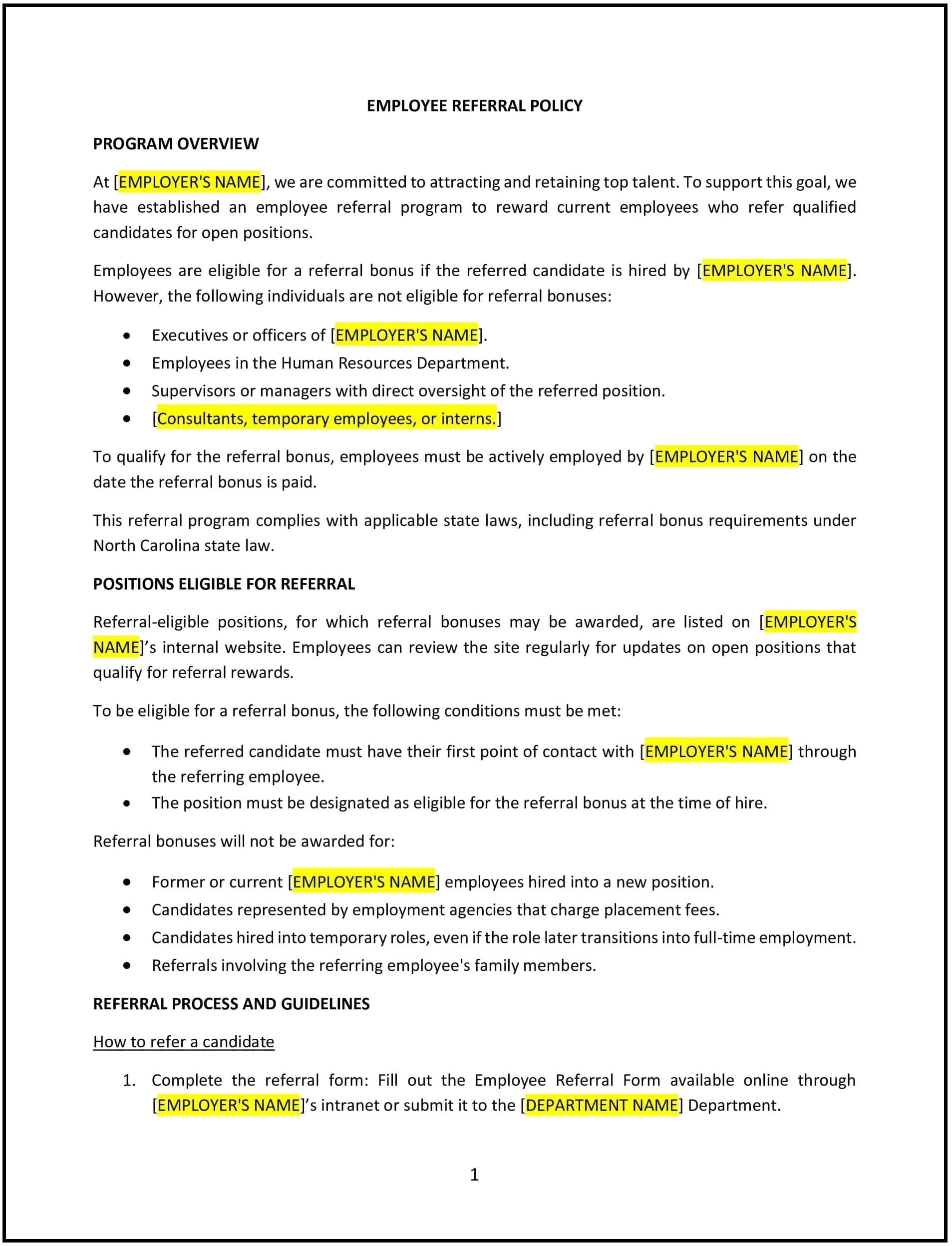Employee referral policy (North Carolina): Free template
Got contracts to review? While you're here for policies, let Cobrief make contract review effortless—start your free review now.

Customize this template for free
Employee referral policy (North Carolina)
An employee referral policy helps North Carolina businesses attract top talent by encouraging current employees to refer qualified candidates for open positions. The policy defines the process for making referrals, the rewards or incentives for successful hires, and the expectations for confidentiality and fairness in the referral process.
By adopting this policy, businesses can leverage their existing workforce to identify high-quality candidates, reduce recruiting costs, and improve employee engagement.
How to use this employee referral policy (North Carolina)
- Define eligibility: Specify which employees are eligible to participate in the referral program, including any exclusions (e.g., HR department or management).
- Outline referral process: Provide clear steps for referring candidates, such as submitting resumes, filling out a referral form, or notifying the hiring manager.
- Set incentive structure: Define the rewards or incentives employees will receive for successful referrals, such as a bonus, gift card, or extra paid time off.
- Ensure fairness: Make sure the referral process is transparent and does not violate any discrimination laws. Specify that all referrals will be evaluated based on qualifications, not personal relationships.
- Address confidentiality: Outline that personal details or referral information will be kept confidential and that the process will adhere to all applicable privacy laws.
- Reflect North Carolina-specific considerations: Ensure that the policy complies with North Carolina’s equal opportunity employment laws and any state-specific regulations regarding hiring and compensation.
Benefits of using this employee referral policy (North Carolina)
This policy provides several benefits for North Carolina businesses:
- Reduces recruiting costs: Employee referrals can significantly reduce the costs associated with traditional hiring methods, such as advertising and using recruitment agencies.
- Attracts high-quality candidates: Employees are more likely to refer individuals they trust and believe are a good fit for the company, ensuring a higher-quality applicant pool.
- Enhances employee engagement: By involving employees in the hiring process and offering rewards for successful referrals, businesses can boost morale and create a more collaborative work environment.
- Improves retention: Employees who are referred and hired through the referral program may have a higher retention rate, as they have a known connection to the company.
- Strengthens company culture: Employee referrals help bring in candidates who are more likely to align with the company’s values and culture.
Tips for using this employee referral policy (North Carolina)
- Communicate the program clearly: Ensure that employees understand how the referral process works, how they can participate, and what incentives are available.
- Track referrals: Implement a system to track employee referrals and ensure the process is managed effectively.
- Encourage referrals for diverse candidates: Encourage employees to refer candidates from diverse backgrounds to promote inclusivity and increase diversity in the workplace.
- Review the policy regularly: The policy should be reviewed periodically to ensure it aligns with company hiring goals, North Carolina regulations, and best practices.